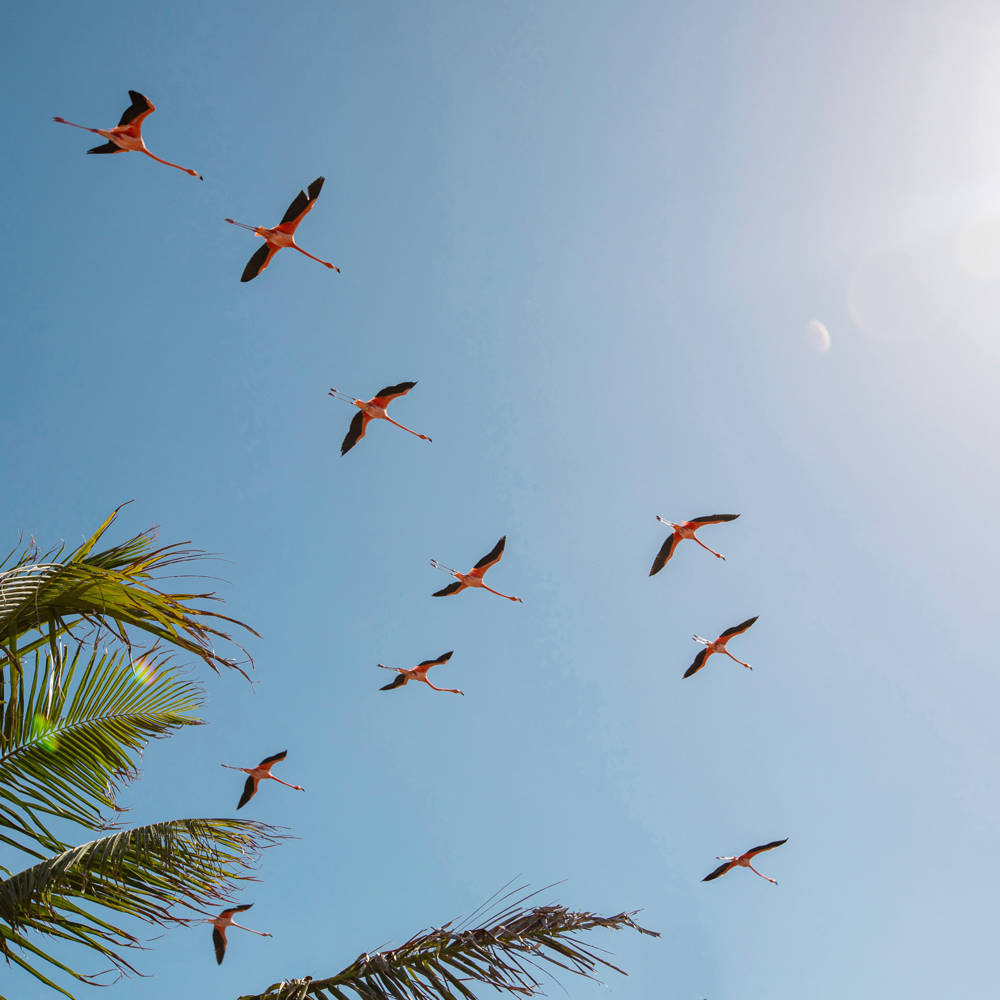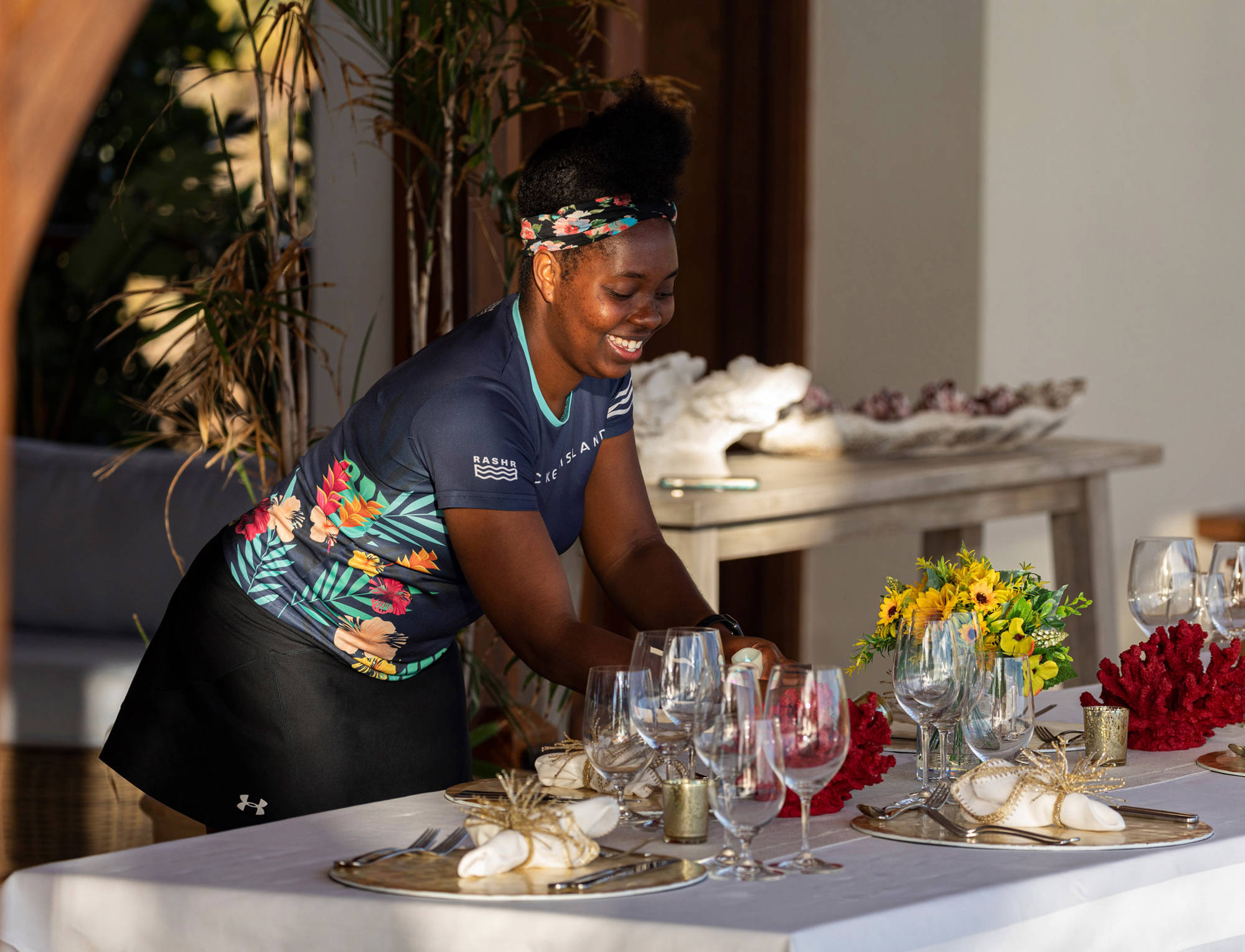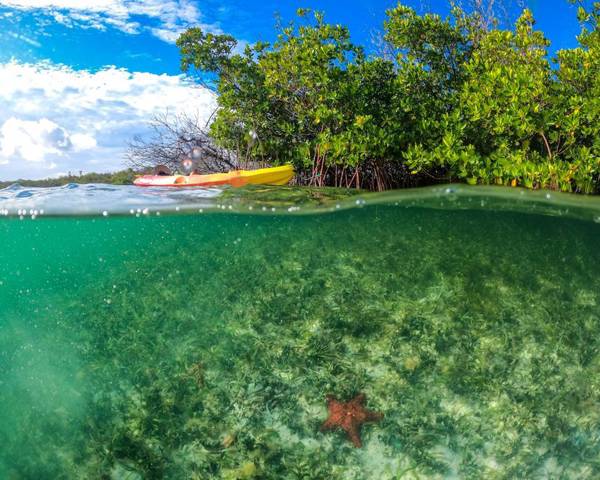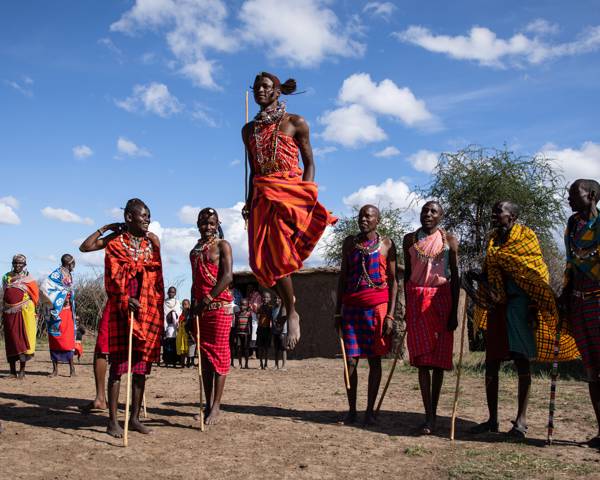Turning plastic bottles into T-shirts
Necker Island may well be one of the world’s most exclusive luxury private islands, but when it comes to what’s at the heart of it, sustainability is front and centre. Following the devastating effects of Hurricane Irma in 2017, the island underwent more than two years of reconstruction; with that came the opportunity to further its commitment to sustainability.
As well as a solar farm and three giant new wind turbines that enable the island to run on up to 100% renewable energy, the island also has an incredible breeding programme for endangered wildlife, water irrigation systems, composting, sustainable menus and an incredible community programme, through the work of Unite BVI.
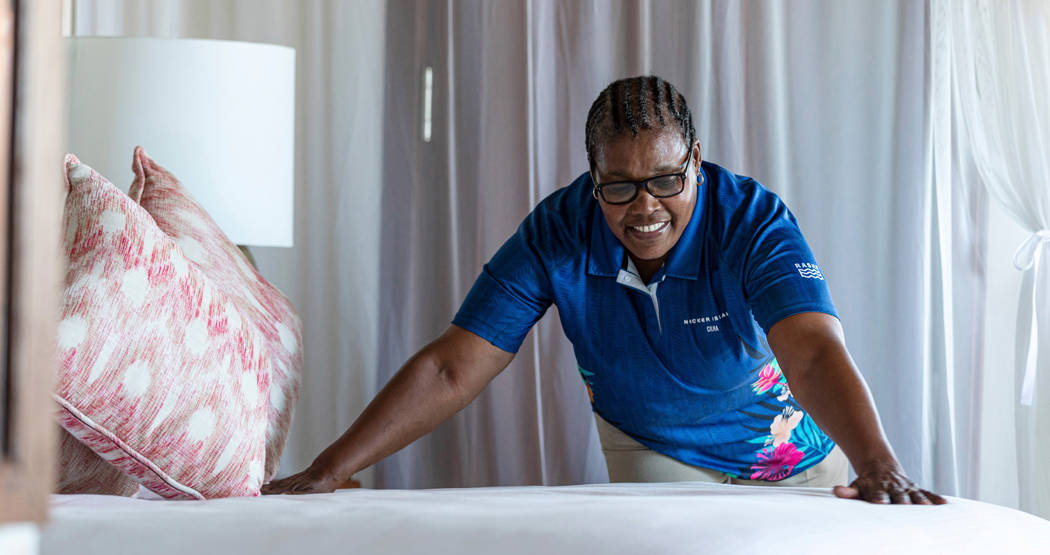
Part of our commitment to sustainability is the introduction of a brand-new uniform for the Necker Island team made entirely from reclaimed ocean waste and recycled plastic bottles. The uniform has been specifically designed for the needs of the private island team, in collaboration with eco-friendly clothing specialists Oceanя, who take post-consumer plastic bottle waste and transform it into to a wearable fabric made from recycled polyester. We're thrilled that the introduction of the new uniform alone has already prevented nearly 20,000 plastic bottles from going to landfill! In fact, an average Necker Island uniform t-shirt made from the recycled material uses the equivalent of 13 two-litre plastic bottles - using these fabrics helps us to not only keep plastic out of the landfills and oceans, but also to save our natural resources.
How is the fabric made?
Recovered ocean waste plastics and post-consumer plastic bottles are collected and brought to an approved recycling facility where the conversion process of turning waste into wearable fabric begins:
A flotation and separation process separates the different types of plastics and in the case of bottles removes the caps and labels from the bottles, as they are made of plastics with different characteristics.
- The materials selected are Polyethylene Terephthalate and they are then processed into flakes which are washed and subsequently melted.
- Yarns are pulled from the melted polyester and the result is a clean, valuable, and recycled raw material perfect for the textile fabric.
- The raw filament yarns are spun into yarn and ultimately woven into a variety of different fabrics.
- The fabric process requires 86% less water and 70% less energy than manufacturing regular polyester, a material that many clothes are made from.
Tom Cotter, CEO of Oceanя,shares his thoughts: "Today we can no longer ignore the harsh reality that we're moving towards with unprecedented and life-threatening challenges for mankind and all things living. It is up to us to find creative ways to address these major concerns. We were incredibly delighted to be working with such a renowned luxury brand and together lead the way in striving for a better future. We loved the challenge of designing a uniform that would work across the island to not only make it sustainable, but highly breathable and SPF50 to accommodate the hot climate, as well as quick-drying – and of course stylish.”
Even more inspiration
Make a difference to mangrove conservation with Necker Island
Necker Island may be one of the most famous and luxurious private islands in the world, but it also has a deeply rooted commitment to conservation, sustainability and community development to ensure the British Virgin Islands continues to thrive for years to come.
Travel with Purpose - Mahali Mzuri
At Mahali Mzuri, our safari camp in the Olare Motorogi Conservancy in Kenya, a number of key healthcare initiatives for children and young people are in place which support and amplify wider government programmes.
